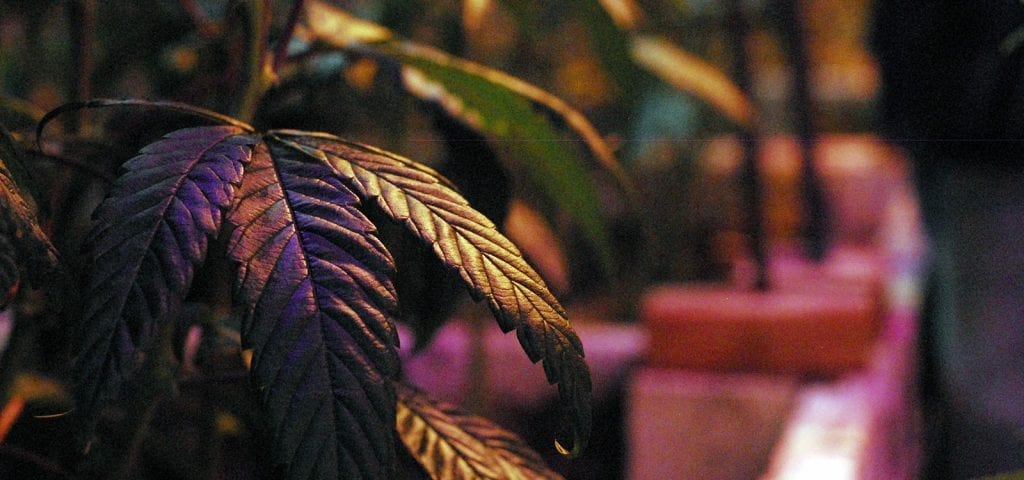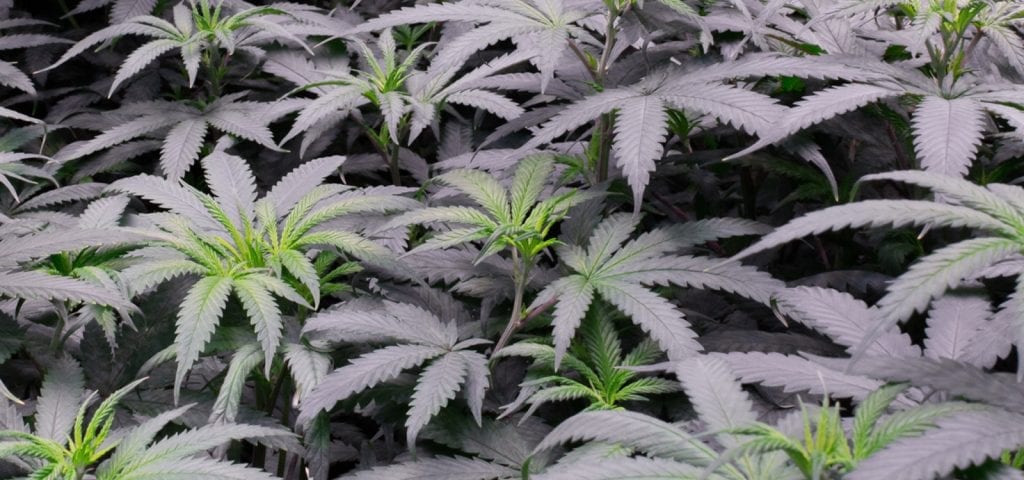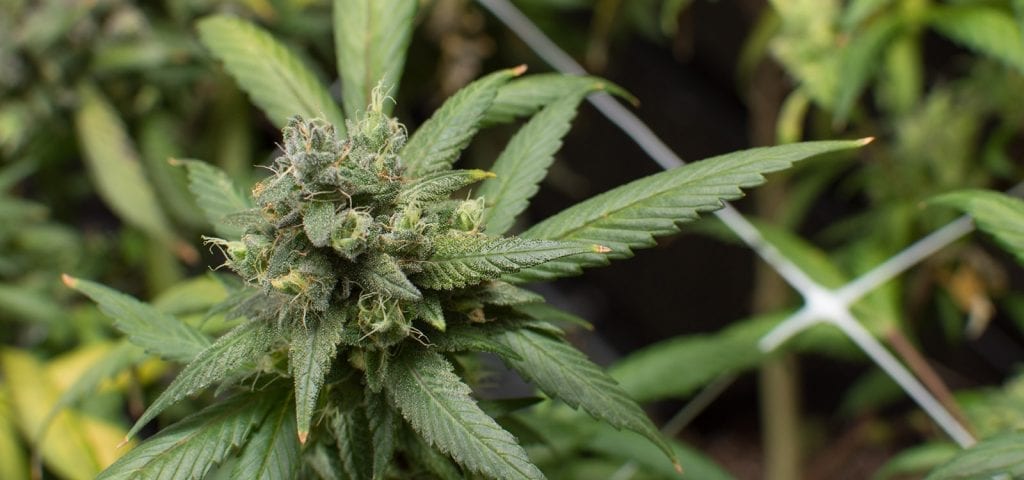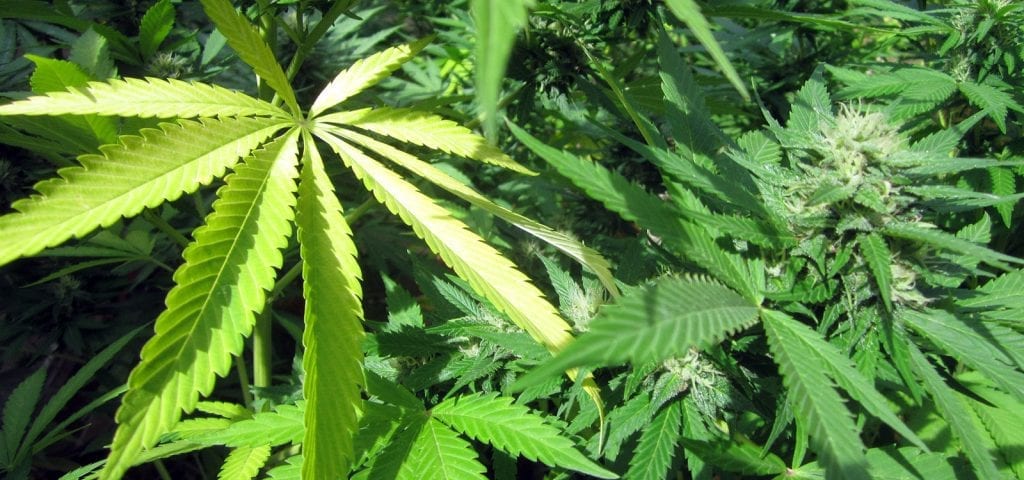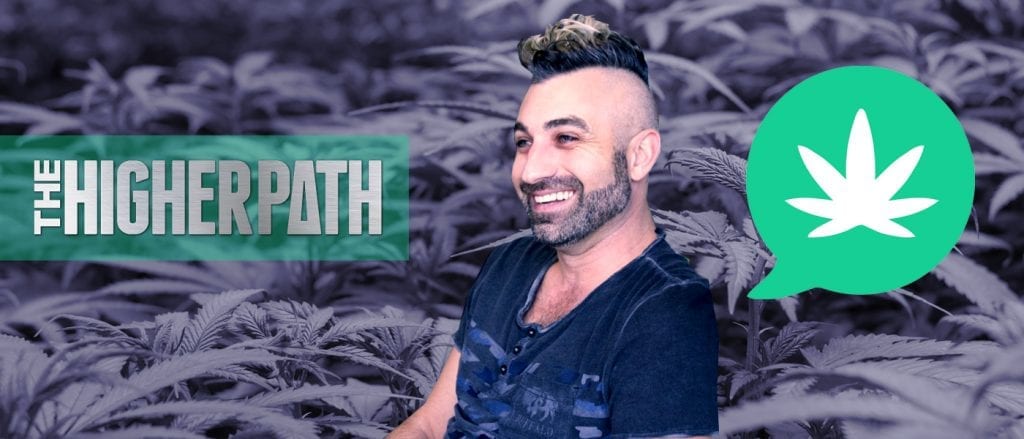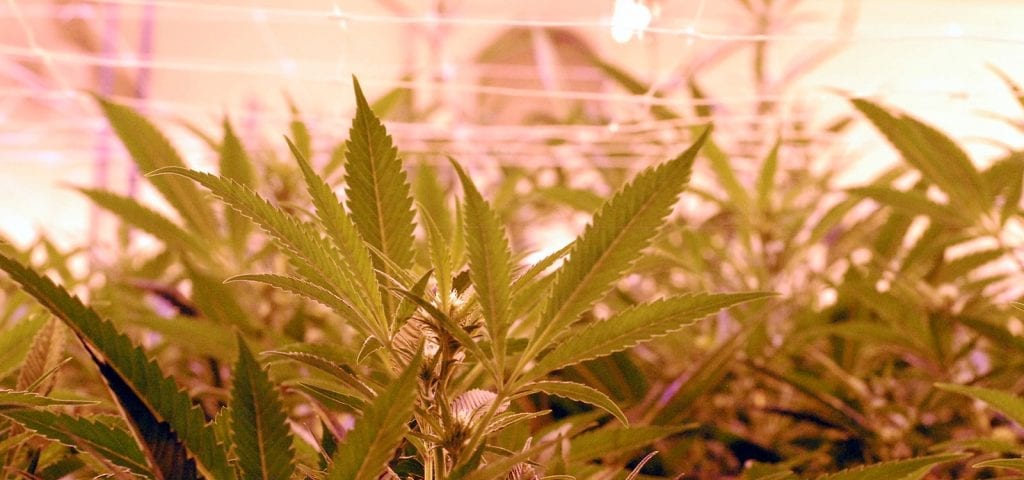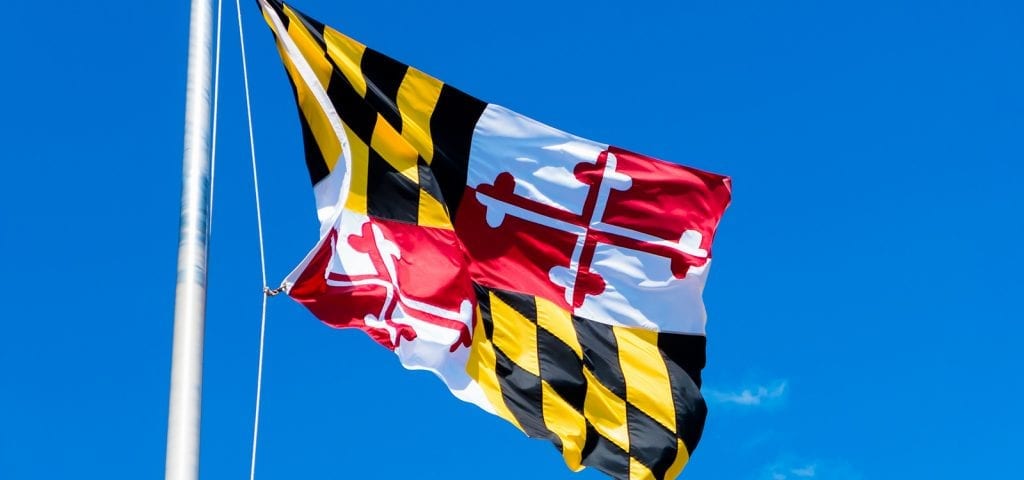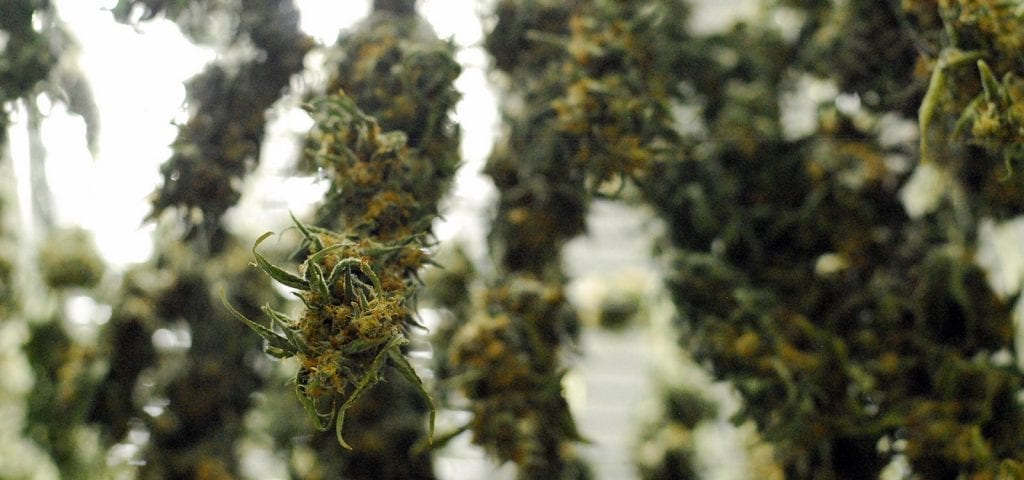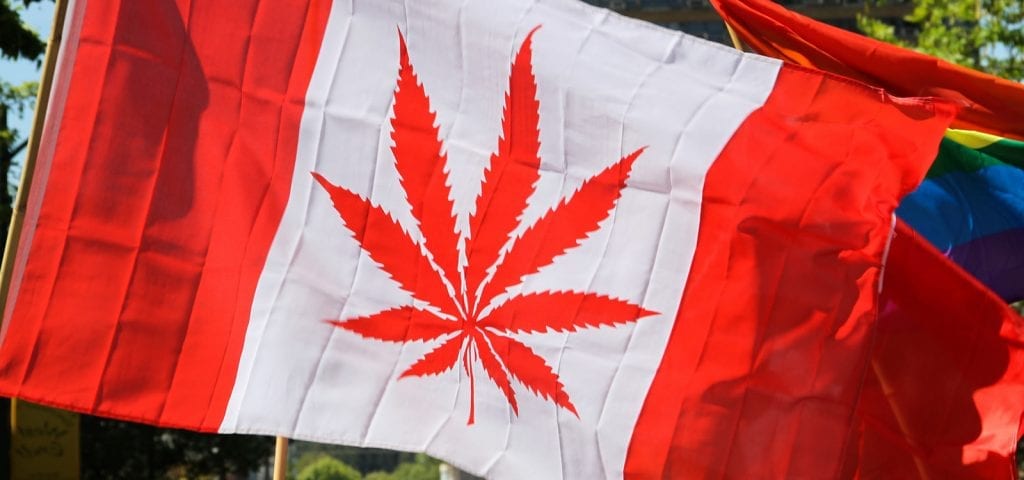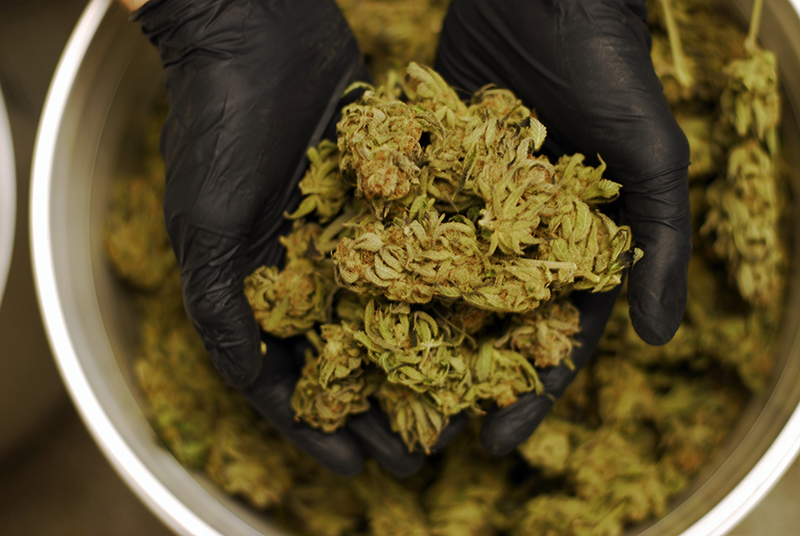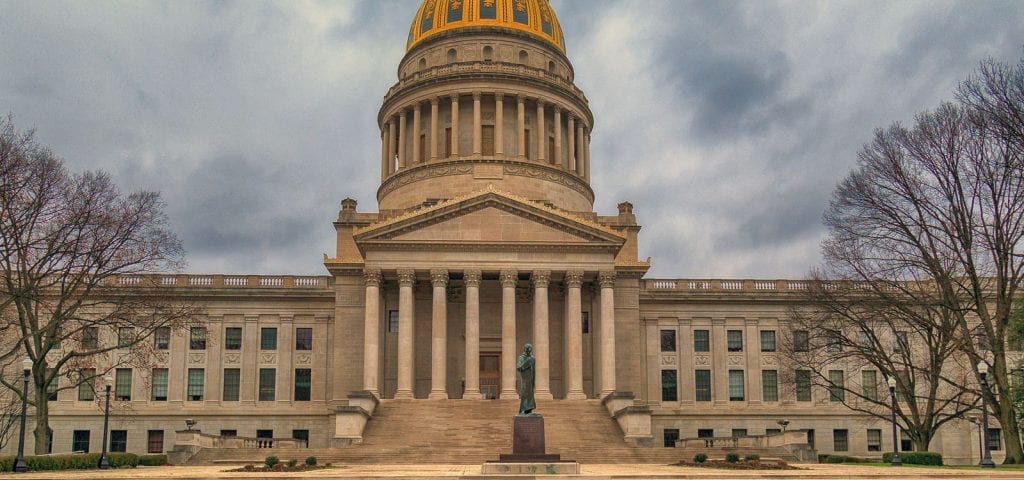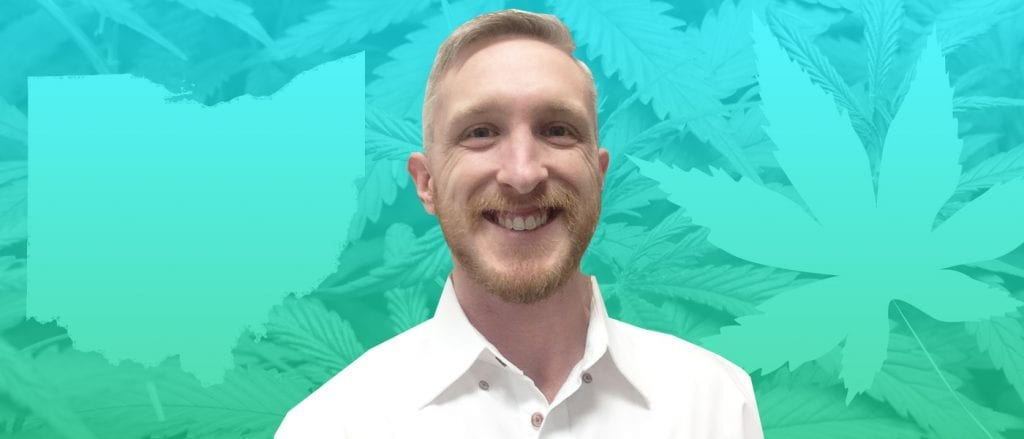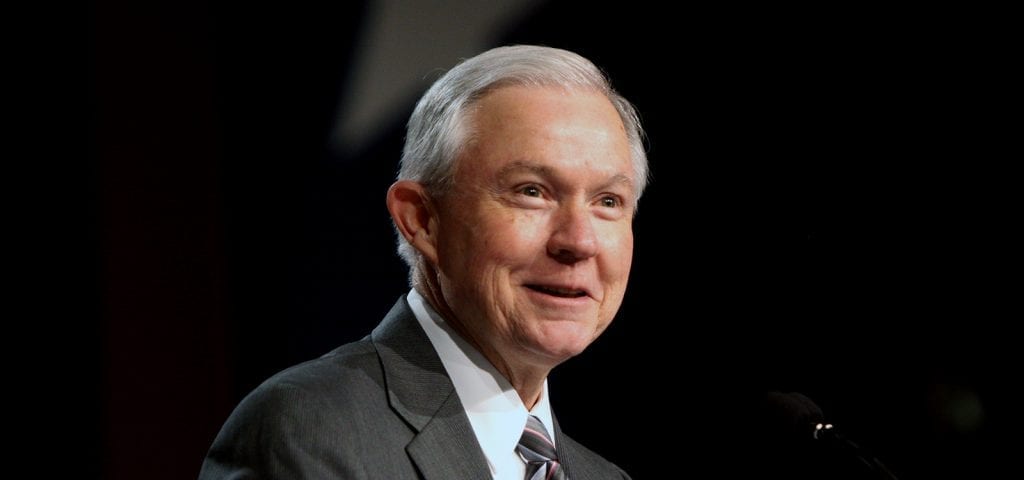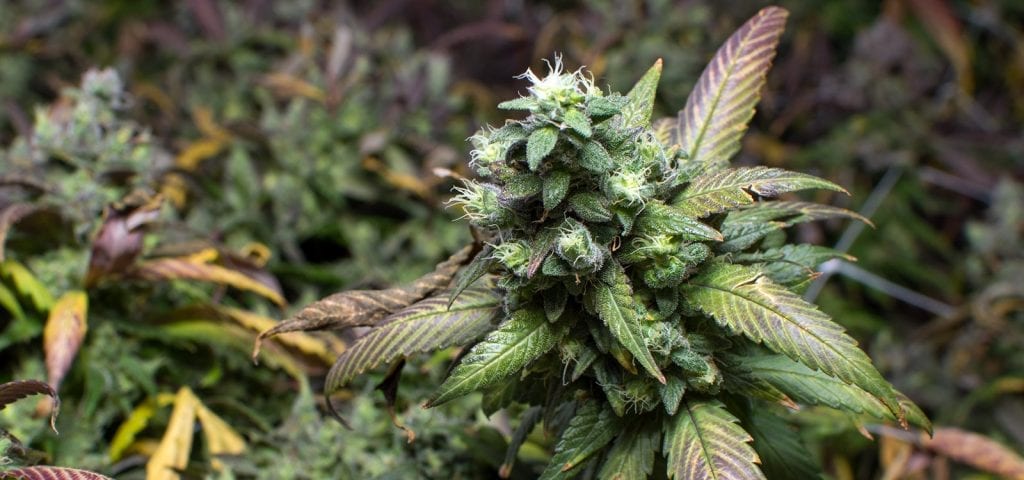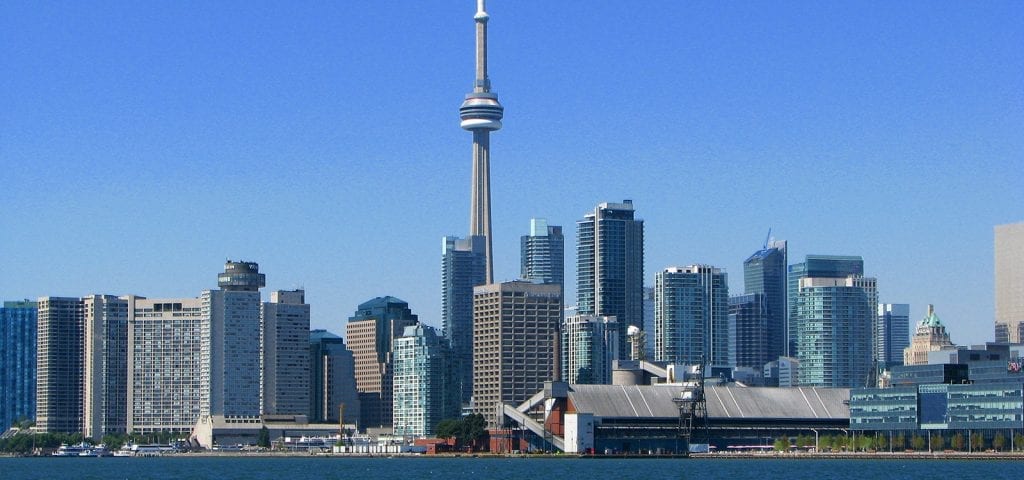Jerred Kiloh is president of the United Cannabis Business Association and owner of The Higher Path, an award-winning medical cannabis dispensary in Los Angeles. In this episode of the Spark the Conversation podcast, host Bianca Green interviews Jerred about creating one of the region’s best-known and most-loved dispensaries.
In the following interview, Jerred shares his own strategies for running a dispensary, which include an emphasis on employee fulfillment & retention, as well as community involvement and making sure that patients feel safe and comfortable during their visit. The two discuss best business practices for the cannabis industry — and according to Jerred, you have to choose the cannabis industry for more than just monetary reasons if you want to truly be successful.
You can listen to the podcast below, or scroll down to read a full transcript of the interview.
Subscribe to the Ganjapreneur podcast on iTunes, Stitcher, SoundCloud or Google Play.
Listen to the podcast:
Read the transcript:
Bianca Green: Welcome to the Spark the Conversation podcast in partnership with Ganjapreneur.com. I am your host, Bianca Green. Thank you so much for tuning in and listening to some people drop knowledge here today. I’ve got Jerred from the Higher Path Collective in Studio City, California. Jerred is the UCBA trade Association president, as well as the owner of the Higher Path. The UCBA is a trade association that is a group of pre-ICO collectives in Los Angeles working together to bring awareness and increase the knowledge of the cannabis industry to policymakers and residents throughout California.
Jerred was recently introduced to me by a friend of mine that I know from high school, and came on board to be a sponsor on our bus tour in November, and it’s been really nice to get to know Jerred, because not only is he talking with us today about the trials and tribulations of being a business owner, and owning a dispensary in California, Southern California specifically, but the path that he, as the president of the Association, is looking to set forth for the future of cannabis industry professionals, and why he staffs his staff the way he does. It’s a very interesting conversation that we have, and thanks for tuning in.
Hi, this is Bianca. I’m here with Jerred at the Higher Path in Sherman Oaks today. Thank you so much for being here.
Jerred Kiloh: I really appreciate it. Thank you, Bianca, I appreciate the invitation.
Bianca Green: It’s crazy how many laws are coming into effect right now, and people coming out of the shadows and into the light is the most important thing. Even spending time up in the Emerald Triangle at the beginning of this tour, everyone’s like, I can tell that there is a feeling like we came to the line too late, and now we’re fighting because we don’t like this initiative, and I hear that. Even when they had the opportunity to fight all year against it and be very vocal about it, nobody has done that.
Jerred Kiloh: Yeah. Right now it’s like, yes, nothing’s going to be perfect ever. There’s too much special interests that go into every initiative that ever gets written, because you don’t write it in a vacuum. There’s people who are trying to get their own self interests as part of that, it’s like you can’t get away from it, and someone’s going to be harmed by a law. It’s not like, oh, a law happens and everyone’s happy. That’s not really a law. That’s a free-for-all.
Yeah, it’s sad, but this is great for getting people out of prison. If nothing else, like who cares about the rest of it then. We’ll work through the rest of it. I think the problem is is a lot of people who have been in this industry this long are really trying to protect what they’ve built, but when it comes down to patient access and what’s best for the community, sometimes we have to go, “Well, this is what every business goes through. We go through these ebbs and flows, we go through different regulations, and we have to adapt.”
As growers who have been here and done this for this long, we’re going to have to adapt. That’s what every business goes through. And it’s sad, because as a cultivator, I know that my job is going to be way more difficult. It’s definitely going to increase costs, and those costs are going to be passed on to the patient. That’s the worst part of this, but hopefully we find a middle ground and have common profit margins.
Bianca Green: Yeah, I was just going to say, do you think it’ll come down in the profit margins, just being more like a regular commodity like a profit margin on a shoe? Because right now they’re big margins.
Jerred Kiloh: Not here. With the amount of taxes we have, it’s like even though we see like 200 patients a day, we still are at a breakeven. With the amount of taxes, and I have 26 employees, and the reason why I have 26 employees is so that I can give you what you need in the way of social media, and attention. Someone’s there for your attention. A lot of other collectives don’t do that. They save money and that, but I think they’re missing out on, how are they going to do outreach? That’s expensive. I have an extra, probably, 12 employees that go above and beyond just the inner workings of the business. It really goes into, how do I expand recognition of this industry, and how do I put a good foot forward for the rest of the people that kinda see, this is an example of how to run a business.
Bianca Green: How did you get into this business table?
Jerred Kiloh: Really just where it squirts water on the roots, and it was like one of the first hydroponic style of growing. He just gave me the table, and gave me the light, and I cleared some space underneath my stairs in San Francisco, and through one light in and one little table, and then started building cabinets so I could do cloning, and do a little bit of vegging. I did it for a little while, and then I saw that it paid my rent, and I was like, “Oh, this is kind of nice.” Then I was like, “Wow, well, what else could I do?” As I slowly expanded, I found a collective that would take my product in San Francisco, and so we had a really good relationship, but I only was producing like one and a half pounds, or two pounds every three months.
That’s pretty much how I got started, and I think the main part was I always told myself, it’s like, I’m too educated to be a drug dealer. If I can’t do this legal, I will do something else, because I really need to forge really good policy, and I need to feel like I am providing for my family, my friends, and my employees. Not in a risky sort of way, but in a way that they feel empowered. That was a really big part of how I got started was, how do I empower this industry legally as much as I can? Yeah, it took that first illegal couple of pounds that I grew, which since I gave it to a dispensary, I guess it really wasn’t illegal, but it took those first couple. Then it expands from there. As I expanded, then I found other dispensaries. There was one dispensary in particular, the Green Cross, that now I’ve been working with and been a part of for over 14 years.
Bianca Green: And that’s up in the Bay Area?
Jerred Kiloh: Yeah.
Bianca Green: Yeah.
Jerred Kiloh: Did a lot with project management, did a lot with business structure, did a lot with acquisition of property, and legal, and Kevin, the president, almost died when it came to, he was immersed in the business. He lived in the dispensary. So much so that he was a part of every aspect of it. It was really just, every employee, everything that came in and out of that place, he just had his fingers in everything. He was so engrossed in it that it really showed, he showed me how much you really can jump into an industry, and give it all of your heart. I think for me, it’s like I do a lot of other industries other than marijuana, so I’m fairly diversified. I really do like to see people who are strict in what their goals and dreams are, and really shoot for those.
Bianca Green: How did you come down to Los Angeles?
Jerred Kiloh: I had some friends about nine years ago who were opening a dispensary, and so I helped fund the opening of the dispensary, supply them with product. Since I had really good connections up north because of the other collective I’ve been running, and all of a lot of my friends up there were growers. It was my way of giving my friends who were growers access to distribution. So for nine years I’d been in L.A. but the ebb and flow of L.A. has been like, okay, you start a collective, they change the laws, you have to close your collective, you lose all your patient base, and you have to start over. It got to be that roller coaster was so expensive that running a dispensary in LA became a net zero. That net zero became harder and harder as someone who wanted to provide for patients. Been here for nine years, but when prop D was coming around, I started coming back, because I finally started to see a real-
Bianca Green: Talk a little bit about prop D. Tell us what prop D was.
Jerred Kiloh: Prop D was the fifth amendment that was brought to Los Angeles in a way to regulate this industry. It was three years ago, and it was put on the voter ballot. It was the first proposition that I think that the state had voted on, have as a proposition as a municipality to regulate the industry. Prop D gave a limited immunity, which means you have immunity from prosecution locally. Wasn’t giving a license or a permit, but it was saying, “Well, license or permit doesn’t really do anything anyway.” They were trying to get underneath the federal radar of giving a permit to someone to grow a schedule one narcotic. That was the negotiation we all went through in Los Angeles, but that gave 134 dispensaries who had followed all the four previous laws that had been enacted, the right to continue to operate, kind of in a grandfather clause. Those 135 now have been operated since-
Bianca Green: Is there a timeline that they had to have been operating for them to get it?
Jerred Kiloh: Yeah. Since 2007 was really when it started, so if you had been in operations 2007, filled out all the paperwork, paid all of your taxes, and did all the things the city had asked you to do for those seven, or I guess it was six years at that point. If you were a good player for six years, then you were given the right to be prop D. That’s where the pre-ICO, which is an intern control ordinance, which says, “We are going to create a law, but until we create a law, we’re going to give this ordinance that gives you some room to operate as a dispensary until our law is enacted,” and Prop D was negotiated out.
Because there was prop E, F, and D that went on the ballot all in that same year, and prop D was the one the city Council had pushed forward, that’s the one that ended up winning over the course of … I think it got 63% of the vote, which is more than the mayor at the time.
Bianca Green: Whoa.
Jerred Kiloh: It really was at this high acceptance rate to have this limited number, because there had been so many illegal shops, or shops operating outside of any good business practices.
Bianca Green: When did that happen? I remember a bunch of shops opening, and there was, up in press release, about there were more Starbucks, I mean more dispensaries in Los Angeles than Starbucks. What do you think prompted that?
Jerred Kiloh: Well, because there was no enforcement. Because the laws were somewhat murky. Because it was hard to tell where they were, were they legal, were they not? How long had they been there? Honestly, it does come down to the police having an incentive when it comes to asset forfeiture, which is also part of it. It’s like, if you can quasi regulate what is quasi legal, then please have the opportunity to have asset forfeitures, and that really does help their budget. They wanted to enforce it in a systematic way that kept enough shops open, but was closing enough shops to continue to, I guess, help their bottom line.
That’s just how asset forfeitures work. In California, we really do need to take away that incentive of asset forfeitures. With close to 1200 shops that were open at that time, yeah, they had to be reined in. That’s where prop D came in. It was an outcry from the city Council and from neighborhoods that are like, “Well, they’re just popping up everywhere. Who’s regulating this?” It’s just the regulations were really murky, prop D was an effort to try to make it a little more clear.
Bianca Green: Yeah, there was a time where, even on the Venice Boardwalk you could go and just, there was a lot of dispensaries that were open, and doctors that had come up that didn’t seem like very legitimate businesses. I think it gave a bad rap to what the medical marijuana industry was trying to do for a while here in Los Angeles.
Jerred Kiloh: Oh, yeah. To hide behind the guise of medicine was what brought the illegitimate side of this industry, and why we’re so looked at as like, okay, these are just profiteering people. Yeah, it tainted the movement when it really was to get patients access. In a lot of ways, patients are the people who have insomnia who can’t sleep and use it. There’s plenty of people who drink two glasses of wine to go to bed, like who’s to say it’s not a patient to take a small hit of marijuana to go to sleep too? I think that’s where a lot of these pot doctors are saying, “Well, if it works for you, how am I supposed to tell you to do something different?”
I think that’s where everyone kind of was a patient, and that got expanded into, now, if everyone’s a patient, well then, I need it because I want to go watch TV. It’s more fun to watch TV high. It’s like, well, okay it degraded from there, but I think it really was a difficult time to see that many doctors move into the area, just pass out prescriptions without any physical, or any sort of psychological evaluation to see how they would be able to accept a psychoactive drug.
Bianca Green: I feel like the people, the consumers started to become more advocates, and started explaining their own personal experiences, which really helped. People started coming out that they replaced a lot of pharmaceuticals with cannabis, and even realizing that made a lot of the, quote unquote, recreational users look at their cannabis consumption as more of a wellness component to their lifestyle. What do you think the future is? Do you think medical will stay in place, and recreational, and they’ll be separate? Or do you think that it’ll fall under more of a wellness product?
Jerred Kiloh: I think it will be more of a wellness product. As we do more studies, and do double-blind tests, and go through what, I guess, is the established way of deciding FDA approval, and the way of establishing how this works for different diseases, we will be able to target diseases, but there’ll still be that aspect of, can I really calm down with this? Is this really a way for me to reduce stress, reduce anxiety? That is a wellness side of things. You look at CBD, CBD’s really do help the homeostasis inside your body. It is a wellness drug at this point. It will be a huge overlap, because wellness does help your health.
They’re so intertwined that to separate them will be difficult, but I think as we do separate them so that we can target certain diseases, get ratios that are very specific, and make people aware that these are the prescribed ways of taking this for this particular disease. I think that is going to be one aspect of the industry, and the rest of the industry will really be about what works well for your body, how do you feel after you’re done using it? How much better are you now in health and wellness by taking it? You can, as an individual, and hopefully in concert with your primary care physician, find a true way of using the cannabis for disease prevention, and also using it for the wellness side.
Bianca Green: Where do you see your business going under that theme? Because right now the collectives are for patients. Once and if, I should say if, legalization happens this year, how does that change the dispensing of it?
Jerred Kiloh: We really do emphasize the wellness of it. When I started this collective, I felt like there was an underserved market of females who felt a little bit sketchy going into some of the dispensaries, and also the openness that was needed for an older demographic to feel comfortable inside of this community. When I started this, my initial patient base was 20% female. Now we’re to 60%, because I catered to that demographic trying to lead a safe, educated place where other females were there who were caregivers.
It’s not just females, it’s the feminine side of anybody’s personality that wants to be that caregiver and give, and when you give, the reception that you get in return, like the reward that you get in return for helping someone is also part of the benefit of working at a collective that really does things on a medical base. Because people walk in and go, “I have not felt this good in 20 years. I’ve dealt with these addictions to opiates for this long, it’s the first time I’ve been able to kick this habit.” Or, “Wow, this is my last resort. I’ve gone through $300,000 in debt to get rid of my cancer, and now this is my last resort. What can you do for me?” Those are the rewards we have here, and I really don’t think that I want to change that model, because those rewards are far better than someone who come in here and go, “Wow, I got so high last night. That was great.” That’s exciting for a second.
Bianca Green: Then make everything that you do that challenges you to create a business here, and be able to dispense a product probably worth it.
Jerred Kiloh: Yeah. It gives the people who work here a purpose. That purpose is greater than just themselves. Sometimes when you’re just a bartender, it’s great. You get this interpersonal connection. Let me get rid of this …
Bianca Green: Yeah, no, I get that. Sometimes when I’m volunteering, even on this tour, it’s like, “Ugh.” Then you just think about the patients, and the people that it’s helping, and the more access that people have to the plant, I feel, the better.
Jerred Kiloh: Yeah. Right now, access to the plant is definitely here. It’s access to the education, and access to someone who can personalize that education to what your individual needs are, and that’s what we do different here. There is a reason why I have an extra three or four employees here every day than I really need to operate this shop. It’s so that I can give you an hour of my time as an individual so that I can ask, “What are your needs? What are your symptoms? Have you tried anything in this industry before? Here’s what we can try to get you on a foundation, and here’s what we’re trying to build towards.” That education changes the way not only they view this product, but the way that they view their own wellness, and how they need to take responsibility for how they’re going to be healthy.
Because here is a foundation for you to build on, I need your input, I need your temperament, what you’re feeling about it. I need all of that so I can build a better product for you individually. I think the reason why we were voted best in Los Angeles for 2016 was because of that very personal connection that we have. We know people’s names. Not just because we ask them, but it’s because we ask them what their name is, we ask them what their ailments are, and because we really want to help them, we take that in as a memory. It’s like we remember who you are and why you were here. That’s the true difference. That’s why I have the same six employees that I started with.
My original six employees are still here after 3 ½ years. In an industry that has the kind of turnover that this does, it feels really good for me to be an owner, and someone who’s managed these people to feel like they are giving back to the community in such a way that the reward system is so much greater than just money. When people go home and tell their roommates, and tell their friends what they did today, that changes how you view coming to work. People come to work happy, and they leave happy. That is a totally different way of seeing work. When the rewards are here at work, it changes the way people view what is considered work. They get paid to come here and help people, and that is something that’s really rewarding.
Bianca Green: That’s really a great foundation to have a business. Tell me, what advice would you give some of the Ganjapreneurs trying to get into the industry?
Jerred Kiloh: I think what it is is it’s a fairly saturated market right now. It’s going to take capital to get into this market now, because permitting is going to be expensive. The amount of inventory you need is expensive. Capital is going to be a big part of it. If you do know how to run a regular business that does give you some advantages, but it doesn’t tell you how to provide for patients. You need to go and get educated about the plant, educated about diseases, educated about that, because that is truly where you can continue to be an outlier in the industry, because the industry is growing towards pure education, pure medicine, pure stuff, that pure idea of, how do we help people? I still think there’s a lot of room for new entrepreneurs in this industry. There is a real space for that still.
Bianca Green: I think, too, that like Bob Marley says, the plant reveals you to yourself. I think when people are patients right now, it allows them the opportunity to have access and figure out how they can actually help the plant. I feel like a lot of people that have been embedded in this industry have a real relationship with the plant, and not just the business side of it. Which I see a lot of new entrepreneurs coming in that are a little bit more focused on the business, and the money aspect. A lot of people who have been pioneers really have a different relationship with it. Tell me what your relationship with the plant is.
Jerred Kiloh: Well, for me, I had insomnia, and so it was like I didn’t know how to fall asleep. I didn’t use it recreationally at first, because I didn’t really have access to it as a kid. Then once I was in high school, I had access to it, and I think we tried it a couple of times in that recreational sort of way, but then it made me tired all the time. Then you put those two pieces together that I could use it to get tired. It did become a tool for me. Since then, I have grown it for 17 years, and I have been an advocate for this for 17 years. I’ve definitely worked on the political side of it in San Francisco for a long time, sat on the medical marijuana task force there, and helped write regulations for San Francisco eight years ago. Really have been an advocate.
These are unpaid positions. These are hours and times that we go through because we want to make sure people have access. It’s not just access, it’s access to good medicine with good education. Because those have to go together. Because just access to it is not enough. Because then you don’t know how to use it, when to use it, and what’s the best one to use. That was really important for me to make sure that that access was there to that education side of it. Writing good policy and procedures for cultivators was important, because I knew a lot about the construction industry. It was like we need to make sure our electrical is right so that we don’t create fires, and we don’t create hazards for our neighbors, and so that we can be good business people inside of our own community. What can you spray on your plants to keep pests away without harming each other?
That was a really big part of how, when we were creating the regulations in San Francisco, that was our main focus. We knew marijuana was there. We knew that dispensaries were there, but what were we going to do to make sure that there was a clear line between a good business, and one that was really just trying to profiteer. That was really big for me. Being in the politics side for this long, I think that it really was the connection to the plant, and then the ability to educate people was where I felt like I had an advantage. Because I can articulate myself about the biology, and the physiological effects of the plant to someone so that they can look internally and say, “Why would I use this? What does that mean to me?” When you bring meaning to the plant, like how you have that personal relationship with it, and how you use it as a tool, that’s when you do become a lover of it, because you know how to use it right.
Some of the new entrepreneurs who are coming in, they need to find the people who have that connection to the plant. They need to partner up, because without the soul that comes along with this industry, really, all we are is a commodity, and it’s we’re not just a commodity, we’re a service and we’re a commodity. We need to combine those two together, and if we don’t combine the service and education with the business side of it, then I think we’re missing out on why we even did this from the very beginning.
Bianca Green: Is that what led you to UCBA? You’re the president of UCBA, correct?
Jerred Kiloh: Yeah.
Bianca Green: Tell me a little bit about how that manifested.
Jerred Kiloh: When I came to Los Angeles, I was like, I am fresh out of San Francisco. We have a great regulatory system. Our city is backing us, Gavin Newson, like really supported our industry in that time, and then subsequent governors also backed our industry because it was well-run and well-regulated. I come to Los Angeles, love the prop D thinking this is going to be the end of the proliferation of illegal shops, and it wasn’t. Since that proliferation just kept happening, and no one was really doing anything to change it, UCBA popped out out of the vacuum that was created by no one really trying to change the politics, the enforcement, the regulation side of it. Everyone was just trying to use prop D as a way to just open a business. Because oh, look, Los Angeles made it legal. Even though there’s only supposed to be 135, there was thousands.
UCBA came and said, “We need to be the business people. We need to write a regulation. We need to make sure the city understands what our industry needs and what we want, and we need to push them to write good legislation.” Because that’s what it took in San Francisco, and that’s what it takes in almost every municipality. It’s like it takes educating them, making it a priority to them. Because politicians have a lot of priorities, and unless you make this a priority, then they’re going to fall to whoever the squeaky wheel is. Yeah, we’ve had to be the squeaky wheel. UCBA stepped up and said, “We’re going to work hand-in-hand with the city Council.” City Council and us were working hand-in-hand for well over nine months, telling them what our industry needed, them telling us what they didn’t want from the industry, and how they were scared about having too many dispensaries, or what the proliferation might look like.
Our ordinance was written with the understanding of what the city wanted. Yes, what the city wanted has changed, because the industry has changed. The knowledge has changed. Their priority to now look at this industry differently has changed. Our ordinance looks like somewhat archaic, because so much has changed in three or four months. We wrote this five months ago. Yeah. What our ordinance really did was give the power to the city Council to make all the adjustments it needed. Instead of having to go back to the voters, which prop D was making us do. That’s why we had to make an ordinance, because the only way to supersede an old proposition is with another voter proposition ordinance. We felt like, yeah, we were going to take the risk. We were going to push city Council to make marijuana a priority, because prop 64 was coming. MRSA was already here, and these are the things that we needed. We’re like, “This is going to be huge, and if we can do it for the city, we can really create a lot of tax revenue.”
We were born out of the vacuum that was needed to have professionals who were willing to put money into legal documents, to put it on the ballot, to get voters to sign. It really was that kind of creation, and in that now we have put the fire to the feet of city Council to do something. We’ve been supportive of them from the very beginning. Like, I’m not egotistical enough to believe that I need my name on an ordinance that gets tax dollars for Los Angeles. I just want to protect this industry, and until someone says, “Someone needs to be legal in Los Angeles for us to really have a fully functional marijuana industry.” Someone needs to be legal. We need to pressure them to make these commitments to permitting, to zoning, to — they have to make the regulations.
That’s what they’ve been tasked to do now. They’ve been forced, and I think we’re getting a little backlash from the city Council on our ordinance, because we’re forcing them to do something. No one wants to be forced to do anything. In this industry, we’ve had to force every municipality to listen to us, do things for our industry, and do what’s right for what is a huge industry in California. We’ve always had to push. Historically, that’s what we’ve had to do. This is no different. Even though now it looks like the writing’s on the wall for legality, you still need to push. Because even now they still haven’t created any sort of regulatory system from the city, and they have until November 9 to do it for the March ballot. Well, they’re just now talking about it last week.
Bianca Green: Wow. It’s today November 2.
Jerred Kiloh: Yeah. They only have six more days to put something on the ballot to either complement our ordinance, or to compete with it. Really, we don’t want to compete with the city. We want the city to have good regulations. I would love to pull our ordinance and say, “The city what you’ve created is way better than what we came up with, because you were taking all of your constituents into account.” We took a small subsection of dispensary owners and said, “This is what we need as dispensary owners, and this is what we think will empower you to regulate the rest of the industry.”
That’s what our ordinance stands for. The ordinance really stands for, you got to do something. Because no, you don’t want to have a trade association come in here and bring in like $20 million in tax revenue, you want the city to write an ordinance so that they can take credit, and allocate the taxes the best way for the city. They need to take that. It was pressuring them to do what was right, which is for the city Council to really write good regulation. That’s what we started with, and our whole goal was to pressure them. That’s what we’ve done. It cost us a lot. In the end, we’ll probably get little or no credit for it, but that doesn’t really matter. If the industry moves in a good place, that was our intention.
Bianca Green: Well, that’s a positive way to perceive and be a part of your industry and community. My last question would be, how does the higher path contribute back to the community? You’ve nailed it in so many different ways, just the time that you donate, and the energy that you donate, not only to helping patients have safe access, but your some would call competitors having the opportunity to have legal businesses. Your community being able to run like a business, I applaud you for that. Tell me what Higher Path’s goals are, other than the advocacy that obviously goes along with UCBA, and your personal advocacy, what are the other things that Higher Path is getting involved with with community outreach, and giving back from a social responsibility perspective?
Jerred Kiloh: Yeah, we’re the first and only collective that’s a part of the Chamber of Commerce here in Los Angeles. Connecting our industry to local business, and local businesses, and their advocacy groups is really important for me. Because we’re no different when it comes to another business. I wanted to take the stigma away of, we’re this outsider. I wanted to come in and let other businesses know that, guess what? I pay all my taxes. I have Workmen’s Comp. insurance. I have general liability. I even have marijuana insurance. That was a big part of the communication between the Chamber of Commerce. We’re also a member of the Sherman Oaks Homeowners Association, we’re a member of VIKO which is a valley industry group of business owners.
We help Women Grow, which is an advocacy group to make sure that women are empowered in this industry. Because they’re under-served, and we donate a lot to food drives, can drives. We’ve done socks. We do all of these advocacy groups. We had a veteran’s month where any veteran who came in here would get about a $200 pack of CBDs when it came to educating them about how it helps with their PTSD, how it could help with phantom pains from lost limbs, and anxiety. We, in conjunction with other distributors, vendors, we said, “Well, if you can donate some products, we’ll pay for some.” It was a concerted effort to find, how can we, as a community, come together and help this ailing subsection of our community in the way of veterans.
Bianca Green: That really can’t even afford this medicine.
Jerred Kiloh: No. We helped with Weed for Warriors, which is a really good advocacy group. We were one of the people who really helped them here. In that, we do a different theme of every month, so that we really focus on different parts of maybe the community, or the outreach. One of our months was for veterans. Another one was for homeless. We’ve done things on just music, and the appreciation of music. It’s like, it’s nice to really dive into the community, but it’s also nice to dive into the other ways, lifestyle ways, so that we’re not just perceived as playing video games and getting high, it really is nice to go and listen to a band while high. It does heighten your senses. It does give you that personal connection.
There is a lot of ways that you can help your community. Right now, I’m more known in this community as a business owner than other businesses know each other. They all know me, but they don’t know each other. Because I walk around and tell them what I’m doing. I’ve asked if we wanted to pitch in and have a security company patrol our back alley, and we could all pull our money together, that would be much cheaper. Because the watch store got broken into, which is right down the street, the drycleaners got broken into. There was this string of thefts and break-ins that were happening, and they all came in from our back alley. It was like, “Well, what can we do as a community to lower our cost, but also make us connected in the way that we support each other in security, and in business?”
I give everyone in this neighborhood, if they’re within a mile radius and they have, and they work anywhere in this mile radius, that they get a discount at the shop. I’m trying to give back to the people who definitely work here, because a lot of times, they might have to commute to this area. To keep those tax dollars right here, I have art at the front. We’ve sold over $30,000 in art from our front lobby. Those are all local artists. We have a comedy show the last Tuesday of every month. Those are local comedians who come here and get a chance to try out their … We have bands who come who are just local bands who get to play in our lobby. We really do try to give the community of arts, and people who are somewhat disenfranchised, yeah, we try to give them access, and we tried to give them a space to show their art, or music. It feels really good.
Bianca Green: That’s wonderful.
Jerred Kiloh: One time a woman, who walked by and sprayed paint on all the dispensaries on Ventura Boulevard. We had a 75-year-old veteran who saw that she poured paint on the front of our building, and so he went to Home Depot, bought brushes, bought paint thinner, and sat outside for about six hours. I was like, “Please, I don’t want you to do this.” He’s like, “This is the way that I get to give back to you with how much you’ve given to me.” He was like, “I want to do this for you.” He’s like, “This is the best way that I can say thank you.” Yeah, he was out there for six hours scrubbing paint, and I felt really guilty, but being I’m not a good receiver, so this is a time when I just said, “I need to receive in this place where he wants to give, so he gets the reward of giving back to us.”
Knowing how many veterans and people come and try to protect our space, it’s one of the reasons why, when people come here, they see it’s such a good feeling. Because most of the people who come here, they come here because they love the fact that we’ve given them the respect that they deserve to come here, not feel guilty about buying a product that is maybe recreational, maybe medicinal. We’re not judging you. You use it the way you want to, and they get a lot of education for it.
Bianca Green: That’s a really important thing. Tell everybody where this is. Tell us where we can find you, Jerred, and the Higher Path.
Jerred Kiloh: Sure. TheHigherPath.com is a good place to start. We’re in Sherman Oaks. We’re at 14080 Ventura Boulevard. I think being a good player in Los Angeles, and showing people that this is the way you can do business, I post my taxes on the front of my window in a laminated picture so that everyone can see what I give away in donations, what I pay in taxes. So that people know that, you know what? I am giving back to my community. Not just in taxes, not just in donations, but in the education and structure that we have for this business. I think a lot of this community, since I have one of the higher retention rates in my industry, once they come here, they don’t really want to go anywhere else. Because there is respect here.
That is a big part of this industry is like, we’ve respected each other in the land in the cultivation side of it that somewhat got lost in the dispensary model. Especially in Los Angeles when there is a proliferation of it. Respect got lost. It became a commodity, it became money, it became hurry, get in, get out, get your stuff, make your decision. Like, “Can I get something that’s good for my asthma?” Like, “I don’t know, just get an OG kush.” That’s the kind of response they got. When people come in here and they talk about what they can do for their asthma, we talk about vasodilators, we talk about anti-inflammatories. We talk about other ways to get it into your body to reduce inflammation. That is the respect that people deserve. When they hear this is medical, they should be able to walk in and actually, physically see that this is medical, and feel that kind of relationship. I think that’s what’s important.
Bianca Green: Awesome. TheHigherPath.com.
Jerred Kiloh: Yeah.
Bianca Green: Check out Jerred, and come check out The Higher Path. It is a very beautiful dispensary, and really lovely employees. You really upped the bar. I remember my first experience, there were bars, and lot of locks. This is a very open door policy, and it feels really good. I encourage everybody to stop by and check it out, and check out what you’re doing with UCBA. Is there a way that people can find out about that association?
Jerred Kiloh: Man, you can Google UCBA, it’s a pretty quick one. You can see-
Bianca Green: United Cannabis Business Association?
Jerred Kiloh: Mm-hmm (affirmative).
Bianca Green: There’s a lot of acronyms in drug policy.
Jerred Kiloh: Very true.
Bianca Green: Right? And trade associations I guess. Well, thank you so much for being here with me today. I really appreciate you having us here. It’s been nice going to the podcast and being able to do it in people’s own territory. I feel at home when I do these.
Jerred Kiloh: I really appreciate you taking this time out of your life too to really advocate for us on a national, and especially right now in California it’s really important that this word does get out, and that we do hear people, and what they want from this industry, and how they’ve had the connection. I think it’s important that we don’t just have industry leaders tell everyone what they’re supposed to hear. We hear the patients, we know what they feel and how the connection is, because that’s truly what matters.
Bianca Green: The conversation right now is everything, because it’s all firsts. Even though things have existed for quite some time, there’s definitely a lot of firsts going on, so I definitely see the value in the conversation, and I appreciate you having one with me today.
Jerred Kiloh: No, thank you. I appreciate it too.
Bianca Green: Awesome.Spark the Conversation is really excited to do this partnership with Ganjapreneur.com creating these podcasts. It’s a resource for cannabis professionals, advocates, patients, business owners, anyone really who is in favor of responsible growth. Visit Ganjapreneur.com for daily cannabis news, career openings, company profiles, and of course, more episodes of this podcast. We’re thankful to them, and the partnership that we have with them, and we appreciate the fact that they spark the conversation, and help Ganjapreneurs grow.
Spark the Conversation is really excited to do this partnership with Ganjapreneur.com creating these podcasts. It’s a resource for cannabis professionals, advocates, patients, business owners, anyone really who is in favor of responsible growth. Visit Ganjapreneur.com for daily cannabis news, career openings, company profiles, and of course, more episodes of this podcast. We’re thankful to them, and the partnership that we have with them, and we appreciate the fact that they spark the conversation, and help ganjapreneurs grow.
